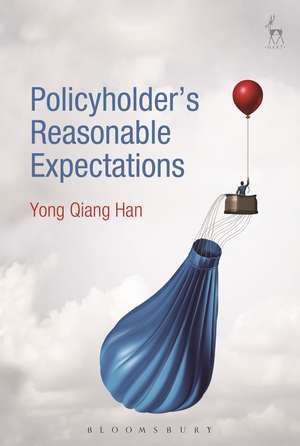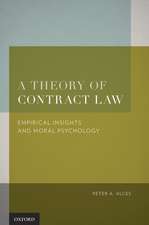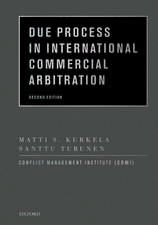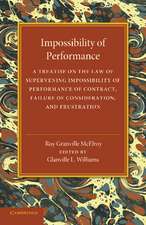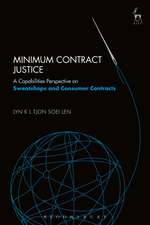Policyholder's Reasonable Expectations
Autor Dr Yong Qiang Hanen Limba Engleză Hardback – 2 noi 2016
| Toate formatele și edițiile | Preț | Express |
|---|---|---|
| Paperback (1) | 271.32 lei 6-8 săpt. | |
| Bloomsbury Publishing – 20 mar 2019 | 271.32 lei 6-8 săpt. | |
| Hardback (1) | 570.43 lei 6-8 săpt. | |
| Bloomsbury Publishing – 2 noi 2016 | 570.43 lei 6-8 săpt. |
Preț: 570.43 lei
Preț vechi: 816.90 lei
-30% Nou
Puncte Express: 856
Preț estimativ în valută:
109.15€ • 113.96$ • 90.34£
109.15€ • 113.96$ • 90.34£
Carte tipărită la comandă
Livrare economică 04-18 aprilie
Preluare comenzi: 021 569.72.76
Specificații
ISBN-13: 9781509900763
ISBN-10: 1509900764
Pagini: 280
Dimensiuni: 156 x 234 x 22 mm
Greutate: 0.59 kg
Editura: Bloomsbury Publishing
Colecția Hart Publishing
Locul publicării:London, United Kingdom
ISBN-10: 1509900764
Pagini: 280
Dimensiuni: 156 x 234 x 22 mm
Greutate: 0.59 kg
Editura: Bloomsbury Publishing
Colecția Hart Publishing
Locul publicării:London, United Kingdom
Caracteristici
This is the first detailed monograph on the divergence of UK contract and insurance law on policyholder's reasonable expectations.
Notă biografică
Yong Qiang Han is Lecturer in Commercial Law at the University of Manchester, UK.
Cuprins
1. Introduction 2. Contract Law and Insurance Law: the Homogeneity 3. Rediscovering Expectations in Contract Law4. Relating Good Faith to Reasonable Expectations 5. Revisiting the Doctrine of Reasonable Expectations in American Insurance Law 6. Reassessing the Objections to Policyholder's Reasonable Expectations of Coverage in English Insurance Law 7. Policyholder's Reasonable Expectations of Bonuses in With-Profits Life Insurance8. Conclusion
Recenzii
This book provides a stimulating and critical review of a doctrine that is far from dead.
A thoroughly researched inquiry that is both broad in scope and nuanced in its analysis of case law and concepts. It not only re-examines and corrects much of the conventional wisdom regarding the reasonable expectations concept but also appreciates the application of the doctrine to the overall insurer-policyholder relationship as well as to coverage disputes...A fresh and interesting exploration that has both perspective and detail. The book makes insightful observations and marshals specific supporting evidence that requires rethinking of traditional views of both insurance law and contract law....Just when you thought everything had been said about the reasonable expectations "doctrine," Professor Han provides new and important insights that will prove valuable to scholars addressing the topic, judges deciding cases, and lawyers representing both insurers and policyholders.
This sweeping study of the policyholder's reasonable expectations makes a strong case for placing greater emphasis on this notion in English insurance law. Analyzing the issue from both doctrinal and comparative law perspectives, it is a must-read for anyone in the field.
This book provides the most systematic and comprehensive analysis in the literature on the principle that courts should safeguard policyholders' reasonable expectations of coverage. In the process, it offers a convincing argument that English insurance law should consider policyholders' reasonable expectations of coverage.
This book provides an analysis of the concept of the policyholder's reasonable expectations and an enquiry into the place this concept holds and should hold in English law on insurance contracts. In doing so the book addresses wider questions, such as the justifications for not making substantial distinctions in law between insurance contracts and contracts in general, the subsumed role of expectations in contract law, and the real significance of good faith in the performance of contracts under English law. It argues that English law's reluctance to engage with the policyholder's reasonable expectations as a contextualist interpretative principle is misplaced and unjustifiable. It is a thought-provoking, engaging and timely discussion of an issue the relevance of which is likely to increase in the aftermath of the reforms to English insurance law.
A thoroughly researched inquiry that is both broad in scope and nuanced in its analysis of case law and concepts. It not only re-examines and corrects much of the conventional wisdom regarding the reasonable expectations concept but also appreciates the application of the doctrine to the overall insurer-policyholder relationship as well as to coverage disputes...A fresh and interesting exploration that has both perspective and detail. The book makes insightful observations and marshals specific supporting evidence that requires rethinking of traditional views of both insurance law and contract law....Just when you thought everything had been said about the reasonable expectations "doctrine," Professor Han provides new and important insights that will prove valuable to scholars addressing the topic, judges deciding cases, and lawyers representing both insurers and policyholders.
This sweeping study of the policyholder's reasonable expectations makes a strong case for placing greater emphasis on this notion in English insurance law. Analyzing the issue from both doctrinal and comparative law perspectives, it is a must-read for anyone in the field.
This book provides the most systematic and comprehensive analysis in the literature on the principle that courts should safeguard policyholders' reasonable expectations of coverage. In the process, it offers a convincing argument that English insurance law should consider policyholders' reasonable expectations of coverage.
This book provides an analysis of the concept of the policyholder's reasonable expectations and an enquiry into the place this concept holds and should hold in English law on insurance contracts. In doing so the book addresses wider questions, such as the justifications for not making substantial distinctions in law between insurance contracts and contracts in general, the subsumed role of expectations in contract law, and the real significance of good faith in the performance of contracts under English law. It argues that English law's reluctance to engage with the policyholder's reasonable expectations as a contextualist interpretative principle is misplaced and unjustifiable. It is a thought-provoking, engaging and timely discussion of an issue the relevance of which is likely to increase in the aftermath of the reforms to English insurance law.
